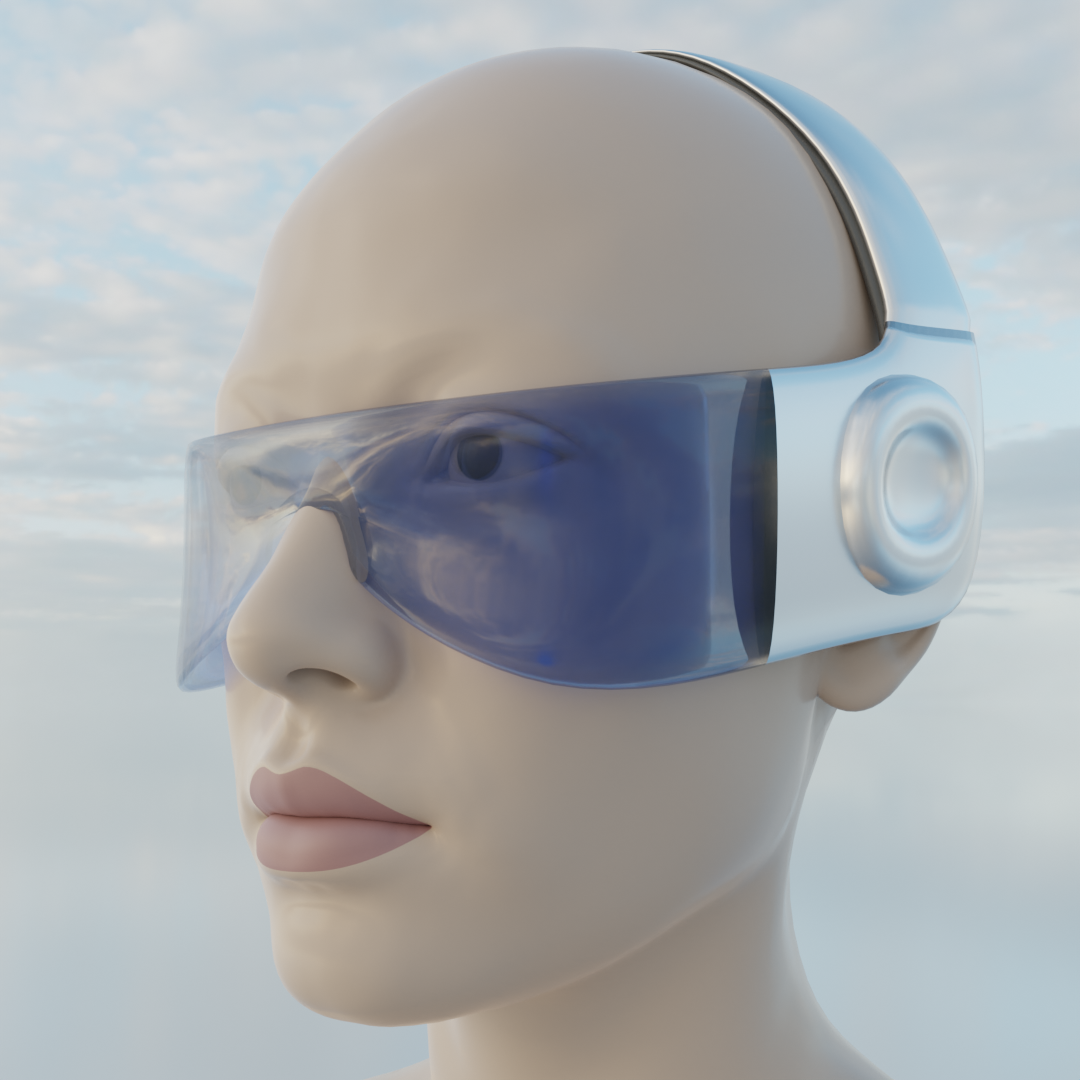Junior, Stamps School of Art & Design


Digital photo
Abstract
Visualized in a 3D render set in a surreal environment, the Lens360 is a spatial computing wearable. The form of the frame is soft and fluid as it seamlessly transforms from the aluminum alloy into the glass-like lens, inside of which is a high-resolution display. The frame itself sits comfortably on top of the user’s head, with a convenient spatial audio button placed above the ear. Grounded in research, the Lens360 highlights the potential of spatial computing and imagines a future where technology seamlessly integrates into human experiences.
The design integrates scientifically-informed components: an aluminum frame for structural durability, ergonomic cushioning for extended use, spatial audio for immersive soundscapes, and a high-resolution display for precise visual output. Each element is supported by research and an evidence-based proposal, bridging the conceptual with the practical.
The Lens360 envisions how today’s emerging technologies, like those found in VisionOS, could evolve into transformative tools. This project emphasizes making advanced technology more intuitive, human-centered, and useful. Research highlights the growing benefits of spatial computing across industries such as workplace productivity, entertainment, and daily life. Ultimately, the Lens360 seeks to inspire a future where science, technology, and design seamlessly merge to enhance human experiences.
